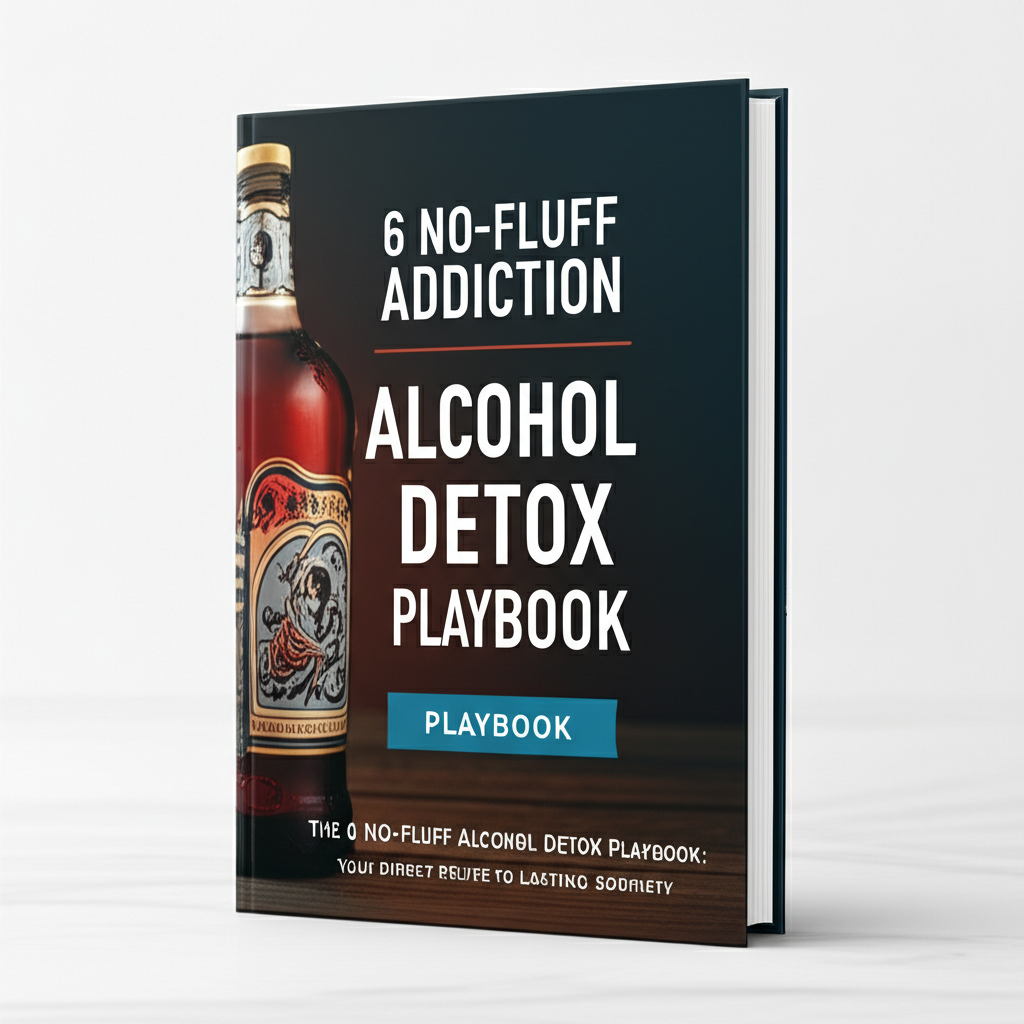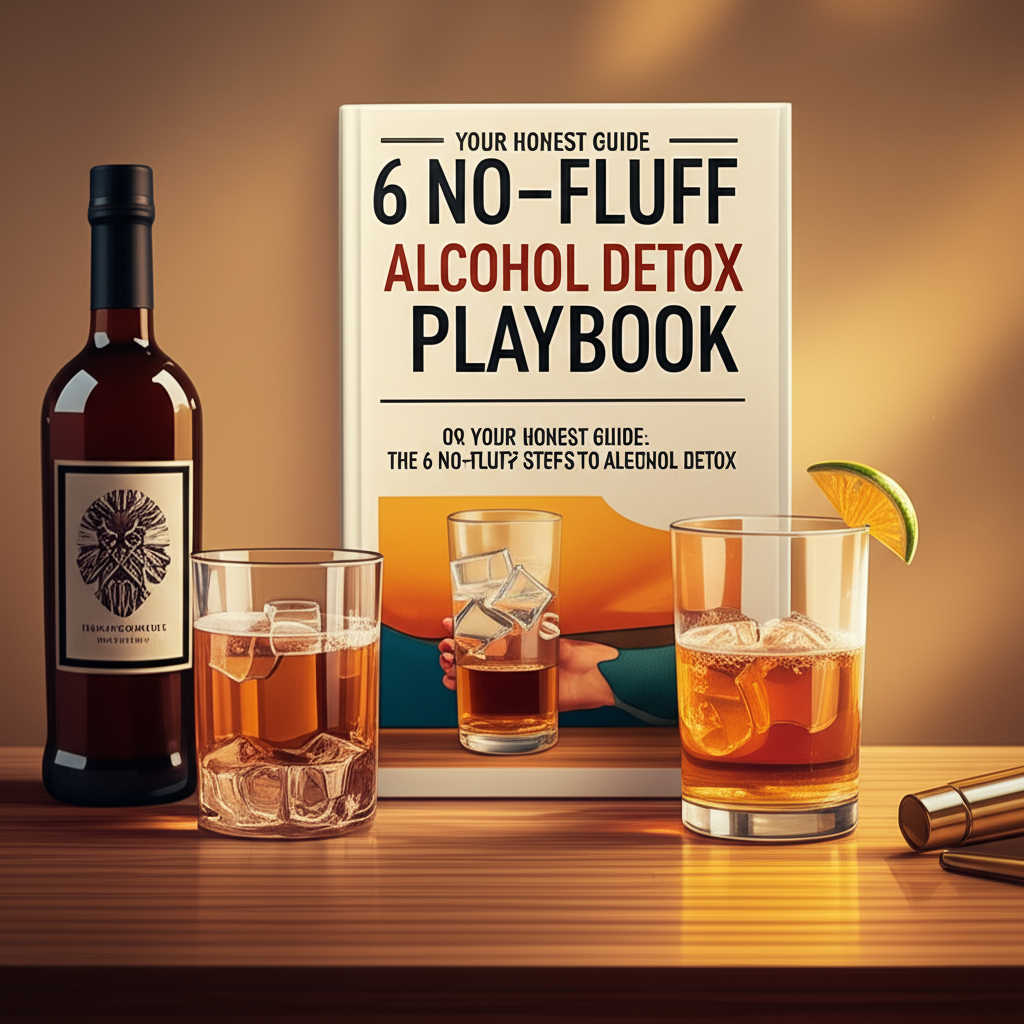The decision to quit alcohol is monumental – a courageous step towards reclaiming your life. But for many, especially those grappling with significant dependence, the path to sobriety is fraught with fear and uncertainty, largely due to the formidable challenge of alcohol withdrawal. This isn’t just about willpower; it’s about navigating a complex physiological and psychological process that can be dangerous, even life-threatening, without proper care.
That’s where the "4 Pro Addiction Alcohol Detox Playbook" comes in. This isn’t a quick fix or a DIY guide; it’s a strategic framework outlining the professional, medically informed approach essential for a safe, effective, and sustainable alcohol detox. Designed for those ready to face their addiction head-on, this playbook demystifies the process, highlighting the critical stages and expert interventions that transform a daunting challenge into a structured pathway to lasting recovery. Let’s explore the four indispensable plays that form the bedrock of a professional alcohol detox.
Understanding the Alcohol Detox Challenge
Before diving into the plays, it’s crucial to grasp why professional alcohol detox is not just recommended but often mandatory for safety. Alcohol dependence alters brain chemistry, leading the body to adapt to its constant presence. When alcohol is suddenly removed, the body goes into overdrive, manifesting a range of withdrawal symptoms.
Why Detox is Dangerous Without Supervision
For individuals with moderate to severe alcohol dependence, abrupt cessation or "cold turkey" detox can trigger severe, potentially fatal withdrawal symptoms. These can include:
- Tremors and Shakes: Often one of the first signs, indicating nervous system hyperactivity.
- Nausea, Vomiting, and Diarrhea: Gastrointestinal distress is common.
- Headaches and Sweating: Intense discomfort.
- Anxiety, Irritability, and Agitation: Severe emotional distress.
- Hallucinations: Visual, auditory, or tactile disturbances that can be terrifying.
- Seizures: Uncontrolled electrical activity in the brain, posing a significant risk of injury or death.
- Delirium Tremens (DTs): A severe and acute form of alcohol withdrawal characterized by rapid onset of confusion, disorientation, agitation, hallucinations, and autonomic instability (rapid heart rate, high blood pressure, fever). DTs are a medical emergency with a significant mortality rate if untreated.
The severity of these symptoms is unpredictable and varies greatly depending on the individual’s drinking history, overall health, and genetic factors. Attempting to manage these alone can lead to serious health complications or even death.
The Importance of Professional Guidance
A professional alcohol detox program mitigates these risks by providing:
- Personalized Medical Assessment: Tailoring treatment to individual needs and health conditions.
- Continuous Medical Monitoring: Ensuring vital signs are stable and intervening promptly if complications arise.
- Medication-Assisted Treatment (MAT): Utilizing pharmaceuticals to ease withdrawal symptoms and prevent severe complications.
- Emotional and Psychological Support: Addressing the mental health aspects often intertwined with addiction.
- A Safe and Structured Environment: Removing access to alcohol and providing a supportive space for healing.
Professional guidance transforms a perilous journey into a carefully managed medical process, laying a secure foundation for long-term recovery.
The 4 Pro Plays for a Safe and Effective Alcohol Detox
Now, let’s break down the strategic plays that constitute a robust, professional alcohol detox.
Play 1: The Precision Assessment & Personalized Plan
The first and arguably most critical play in the playbook is a comprehensive, individualized assessment. This isn’t a one-size-fits-all approach; it’s about understanding the unique tapestry of a person’s addiction, health, and life circumstances to craft a tailor-made treatment strategy.
What it involves:
- Detailed Medical History: A thorough review of past and present physical health conditions, including any pre-existing illnesses, medications, and previous detox experiences. This helps identify potential risks or co-occurring medical issues that need to be managed during detox.
- Substance Use History: An in-depth discussion about the type, quantity, frequency, and duration of alcohol consumption, as well as any other substances used. This informs the potential severity of withdrawal.
- Mental Health Evaluation: Screening for co-occurring mental health disorders such as depression, anxiety, PTSD, or bipolar disorder. These conditions often fuel addiction and must be addressed concurrently for successful recovery.
- Physical Examination: A physical check-up to assess overall health, liver function, cardiovascular health, and nutritional status.
- Social and Environmental Factors: Understanding the individual’s living situation, support system, employment, and potential triggers in their environment.
Why it’s crucial:
This meticulous assessment dictates the appropriate level of care (inpatient vs. outpatient), the specific medications to be used, and the intensity of monitoring required. For example, someone with a history of seizures will require more intensive monitoring and specific anti-seizure medication during detox. This play ensures that the detox process is as safe and comfortable as possible, directly addressing individual vulnerabilities and strengths.
Play 2: Medically Supervised Detoxification – Navigating Withdrawal Safely
Once the personalized plan is in place, Play 2 focuses on the core process of safely managing acute alcohol withdrawal symptoms under constant medical supervision. This is where the body begins to purge alcohol and re-regulate itself.
The core of detox:
This phase involves around-the-clock monitoring by medical professionals (doctors, nurses) who track vital signs, assess symptom severity, and administer medications as needed. The goal is to:
- Stabilize the individual: Prevent severe complications like seizures or DTs.
- Alleviate discomfort: Reduce the physical and psychological pain of withdrawal.
- Maintain hydration and nutrition: Address deficiencies often associated with chronic alcohol use.
Medication-Assisted Treatment (MAT):
The cornerstone of safe alcohol detox is the strategic use of medications. The most common medications include:
- Benzodiazepines (e.g., Ativan, Valium, Librium): These are frontline medications used to calm the overactive nervous system, reduce anxiety, prevent seizures, and manage tremors. They are carefully tapered down over several days to avoid dependence.
- Anti-Seizure Medications: Sometimes used in conjunction with benzodiazepines, especially for individuals with a history of withdrawal seizures.
- Nutritional Supplements: Thiamine (Vitamin B1) is often administered to prevent or treat Wernicke-Korsakoff syndrome, a serious brain disorder caused by thiamine deficiency common in heavy drinkers.
- Other Symptom-Specific Medications: Anti-nausea drugs, pain relievers, or sleep aids may be used to manage specific symptoms.
The role of medical staff:
Nurses and doctors continuously assess the individual’s condition, adjusting medication dosages, monitoring for adverse reactions, and providing immediate intervention if any medical emergencies arise. This continuous oversight is what makes professional detox profoundly safer than attempting to detox alone.
Play 3: Holistic Therapeutic Support – Healing Body, Mind, and Spirit
While medical detox addresses the physical addiction, Play 3 focuses on the crucial psychological and emotional healing that runs concurrently with, and extends beyond, the acute withdrawal phase. Addiction is rarely just a physical problem; it’s deeply rooted in mental health, trauma, and behavioral patterns.
Beyond physical detox:
This phase begins to equip individuals with the tools and insights needed to understand their addiction and build a foundation for long-term sobriety. Key therapeutic components include:
- Individual Therapy: One-on-one sessions with a therapist (e.g., CBT, DBT, Motivational Interviewing) to explore underlying issues, develop coping mechanisms, challenge negative thought patterns, and address trauma.
- Group Therapy: Provides a sense of community, shared experience, and peer support. It allows individuals to learn from others, practice communication skills, and reduce feelings of isolation.
- Family Therapy: When appropriate, involving family members can heal relationships, improve communication, and educate loved ones on how to support the recovery process effectively.
- Education on Addiction: Understanding the neuroscience of addiction, triggers, cravings, and relapse prevention strategies empowers individuals to take control.
- Complementary Therapies: Many programs integrate holistic approaches like:
- Nutritional Counseling: To repair the body and brain damaged by alcohol.
- Mindfulness and Meditation: To manage stress, anxiety, and cravings.
- Yoga and Exercise: To improve physical health, mood, and stress reduction.
- Art or Music Therapy: As alternative outlets for expression and emotional processing.
This play recognizes that true recovery involves healing the whole person, not just abstaining from alcohol. It helps individuals identify the root causes of their drinking and develop healthier ways to cope with life’s challenges.
Play 4: Comprehensive Aftercare & Relapse Prevention – Sustaining Sobriety
Detox is merely the first step; sustainable sobriety is the marathon. Play 4 emphasizes the critical importance of a robust aftercare plan designed to prevent relapse and support long-term recovery. Without a solid aftercare strategy, the risk of returning to alcohol use significantly increases.
Components of a comprehensive aftercare plan:
- Ongoing Therapy: Continuing individual or group therapy provides consistent support, helps navigate new challenges in sobriety, and reinforces learned coping skills.
- Support Groups: Active participation in peer-led support groups like Alcoholics Anonymous (AA), SMART Recovery, or similar programs provides invaluable community, accountability, and mentorship.
- Sober Living Environments: For some, transitioning to a sober living house after inpatient detox offers a structured, supportive, and alcohol-free environment while reintegrating into daily life.
- Relapse Prevention Planning: This involves identifying personal triggers (people, places, emotions), developing specific strategies to manage cravings and high-risk situations, and establishing an emergency plan for when challenges arise.
- Life Skills Training: Addressing practical aspects like financial management, job searching, healthy relationships, and stress management, which are crucial for stable living in sobriety.
- Regular Check-ups: Continued medical monitoring, especially for those with co-occurring physical or mental health conditions, ensures overall well-being.
- Building a Support Network: Fostering healthy relationships with sober friends, family members, and mentors who can provide encouragement and support.
This final play is about building a new life free from alcohol, equipped with resilience, a strong support system, and effective strategies to maintain sobriety through life’s inevitable ups and downs.
Who Needs Professional Alcohol Detox?
While casual drinkers may be able to cut back on their own, professional detox is strongly recommended for individuals who:
- Have a history of heavy, prolonged alcohol use.
- Have experienced previous severe withdrawal symptoms (seizures, DTs, hallucinations).
- Suffer from co-occurring mental health disorders (depression, anxiety).
- Have underlying physical health conditions (heart disease, liver issues, diabetes).
- Lack a safe, supportive home environment to detox in.
- Have attempted to quit before and failed due to withdrawal severity.
Debunking DIY Detox Myths
It’s vital to address the dangerous misconception that alcohol detox can be safely managed at home without medical intervention.
- Myth: "I can just tough it out."
- Reality: For moderate to severe dependence, "toughing it out" can lead to life-threatening seizures, heart complications, and Delirium Tremens. The intense discomfort and psychological distress often lead to relapse back into drinking.
- Myth: "A friend can watch over me."
- Reality: While well-intentioned, a friend or family member is not equipped to monitor vital signs, administer life-saving medications, or respond to medical emergencies like seizures or cardiac arrest.
- Myth: "Herbal remedies will ease withdrawal."
- Reality: There is no scientific evidence that herbal remedies can safely and effectively manage severe alcohol withdrawal symptoms or prevent complications. Relying on them delays necessary medical care.
Attempting a DIY detox not only puts your life at risk but also often leads to failure, reinforcing feelings of hopelessness and making future attempts more difficult.
Conclusion
The journey to sobriety is one of the most challenging, yet ultimately rewarding, paths an individual can embark upon. The "4 Pro Addiction Alcohol Detox Playbook" offers a beacon of hope and a clear, strategic framework for navigating the critical first steps of alcohol detox. By embracing these four plays – Precision Assessment, Medically Supervised Detox, Holistic Therapeutic Support, and Comprehensive Aftercare – you are not just quitting alcohol; you are strategically rebuilding your life on a foundation of safety, understanding, and sustained support.
Remember, seeking professional help is a sign of immense strength, not weakness. It means you are choosing life, health, and a future free from the chains of addiction. You don’t have to face this challenge alone. Take the first courageous step today and consult with addiction specialists who can guide you through this proven playbook towards lasting recovery. Your new life is waiting.








